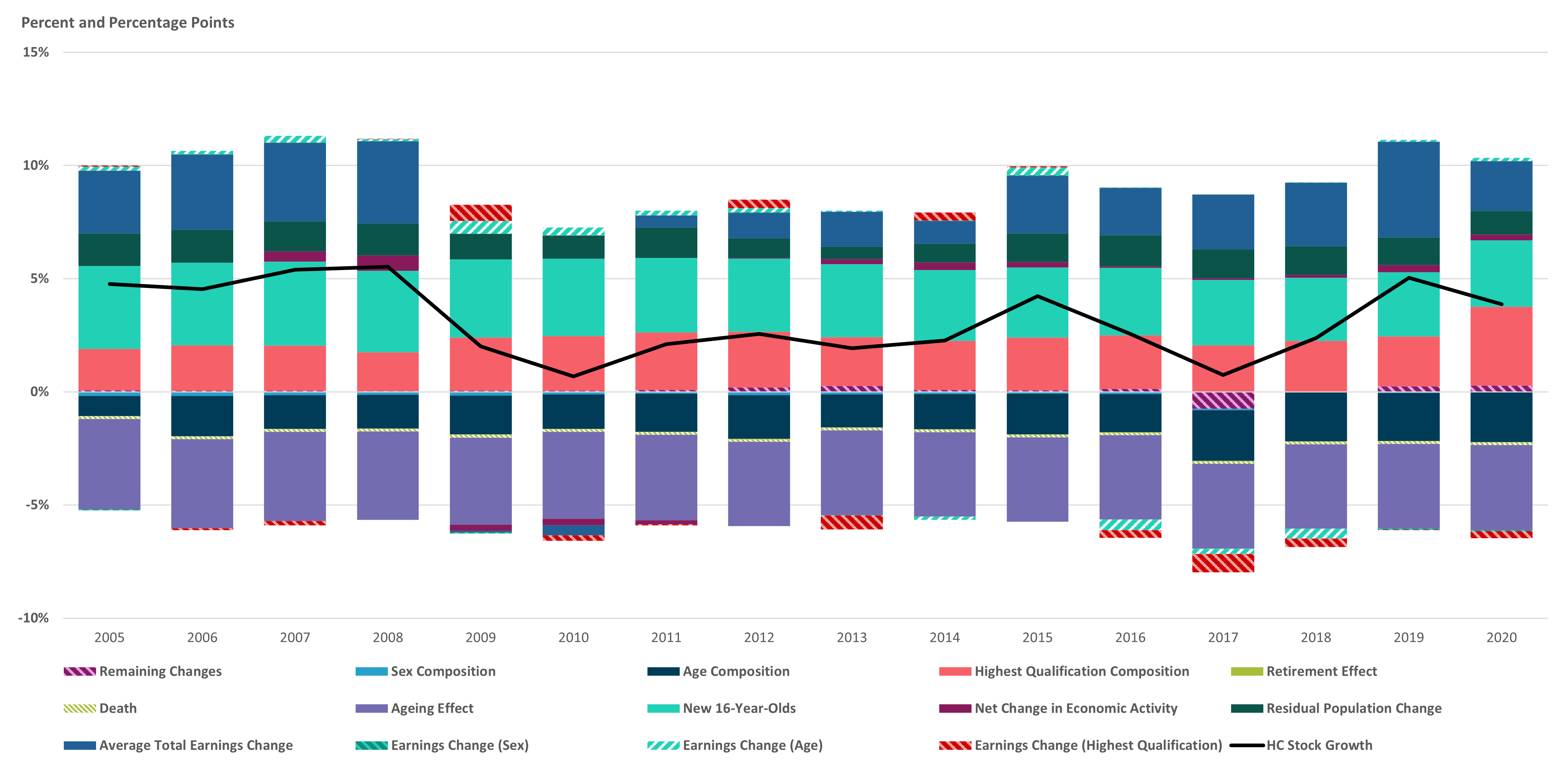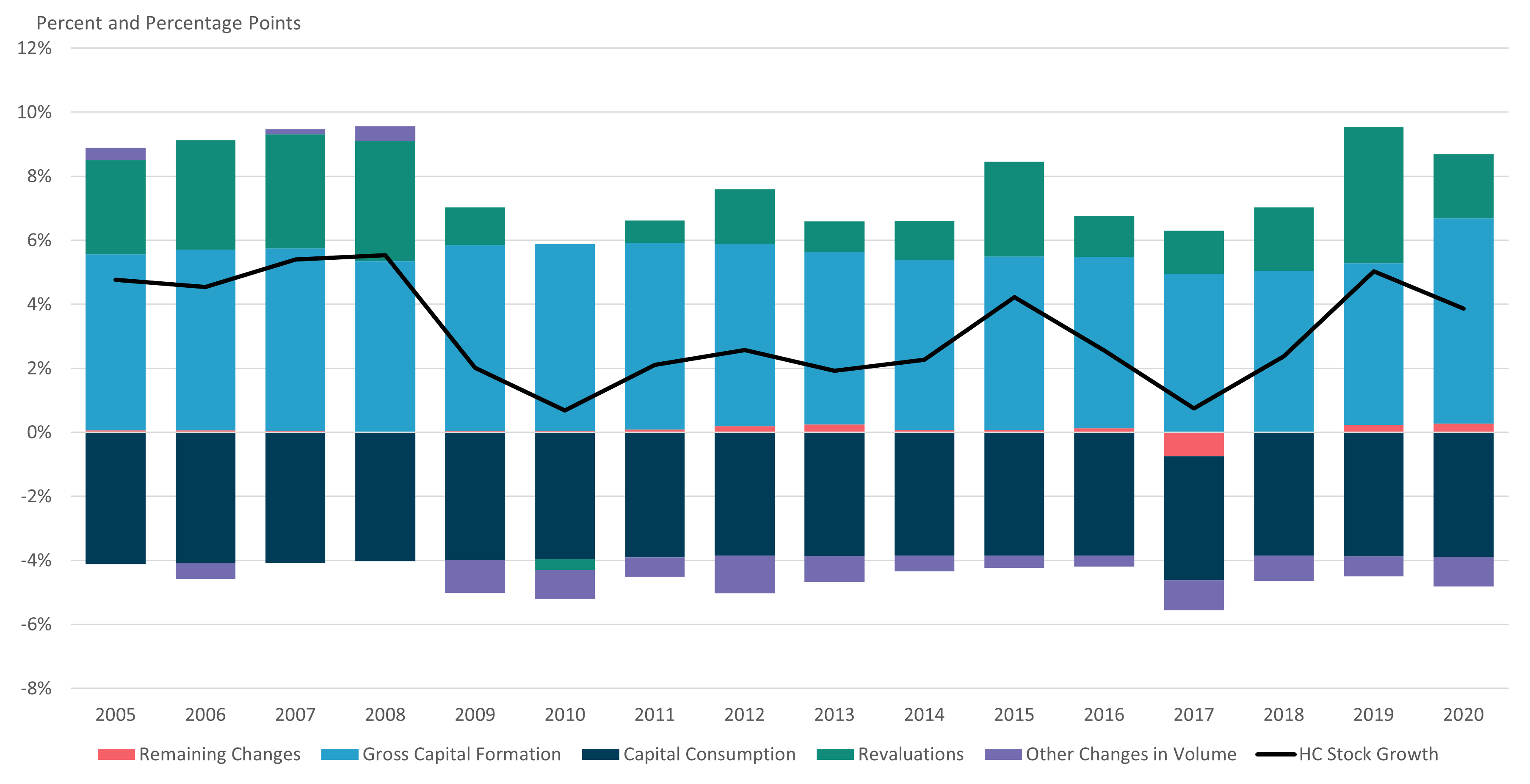Measuring the Economic Flows of UK Human Capital
Conference
65th ISI World Statistics Congress
Format: CPS Paper - WSC 2025
Keywords: capital, flows, gdp, human, human_capital, stock, sustainabledevelopment, system of national accounts
Session: CPS 35 - Economic Measurement and Productivity
Monday 6 October 5:10 p.m. - 6:10 p.m. (Europe/Amsterdam)
Abstract
Human capital can be defined as the knowledge, skills, and attributes of people that enable the creation of personal, social and economic well-being. Human capital estimates are an essential component of the broader suite of economic indicators that go beyond Gross Domestic Product (GDP). Developing and improving human capital measures is crucial for aiding academics and policymakers in understanding and determining the sustainability of countries’ long-term development paths beyond GDP.
A country’s stock of human capital is the total value of every individual’s human capital (as measured by their Lifetime Earnings) in the working-age population. Annual estimates of the stock of human capital for the UK are produced by the Office for National Statistics (ONS) according to the Income-Based Approach, one of the internationally recognised methods for measuring human capital stock outlined in United Nations Economic Commission for Europe’s (UNECE) Guide to Measuring Human Capital 2016.
However, there is less research, international guidance or agreement on how to estimate the economic flows associated with the human capital stock (i.e. the transactions explaining the change in the stock between accounting periods).
Our new research paper presents a method for estimating these economic flows. We use ONS’s annual unpublished human capital datasets to decompose the change in the UK’s nominal human capital stock into multiple components. Our paper presents estimates of the economic flows for 2005 to 2020. We have gone further, however, and mapped these flows to the broader and higher-level economic flow categories associated with the System of National Accounts 2008 (SNA 2008) – namely: Gross Capital Formation, Capital Consumption, Revaluations and Other Changes in Volumes – to provide a basis for integrating human capital's contribution to economic growth into the national accounting framework.
We have also discovered and described several cases where there are methodological incongruities between the method for measuring human capital in UNECE 2016 and the economic accounting principles contained within SNA 2008. These findings warrant further thought and attention at the international level.
Our results show that the flows that were consistently the largest positive contributors to the growth in the UK’s stock of human capital were the new cohorts of sixteen-year-olds entering the working-age population each year and the change in the population’s highest qualification level composition.
The flows that were consistently the largest negative contributors to the growth in the UK’s human capital stock were the ageing effect (people becoming a year older) and the shift in the working-age population’s age composition towards more older workers who have less lifetime earnings remaining and, therefore, lower human capital. The growth in average total earnings was also a large positive contributor to growth in the stock for most years.
With this research, we provide a foundation for estimating the economic flows associated with the human capital stock which fills a conspicuous gap in the economic statistics literature. In so doing, we hope to inspire others to research this area which has not been given the attention it deserves.
Figures/Tables
Contributions to UK Human Capital Stock Growth

Contributions to UK Human Capital Stock Growth (SNA 2008 Flows)

